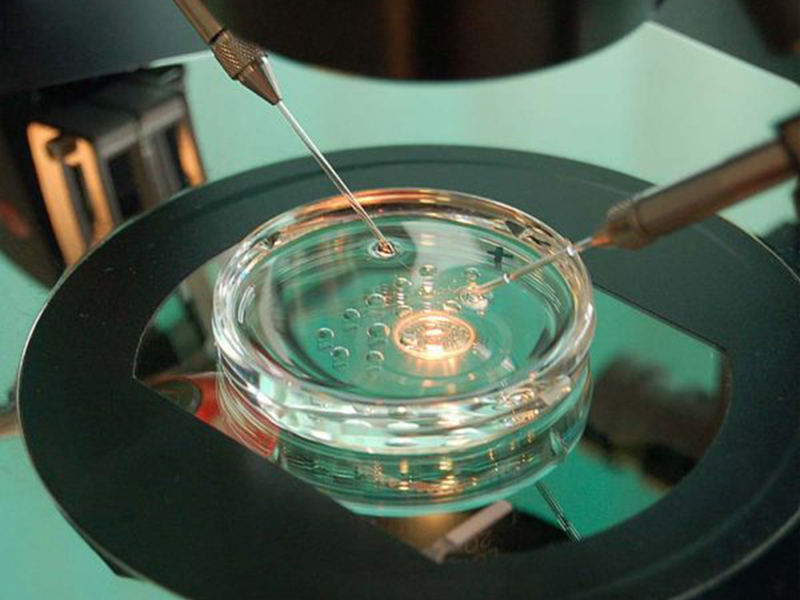+84 932110516 (Zalo)

The difference between IVF and ICSI is how the sperm fertilizes the egg. In the IVF process, the egg and sperm are left in a laboratory dish to fertilize on their own. In ICSI process, the selected sperm is directly injected into the egg under the microscope. ICSI give in satisfactory fertilization results and reduce problems with abnormal fertilization caused by eggs and sperm. There are the fertilization by multiple sperm and the inability of the sperm to penetrate the eggs and fertilize, etc. First step, ultrasound scan and hormonal blood test are performed in day 1-3 of your period. Then. The female has received ovarian stimulation about 8-10 days to acquire multiple good quality eggs, doctors will collect eggs. The eggs will be transferred to a culture media and kept in an incubator. After waiting the eggs to mature for the right amount of time, the embryologist will inject the sperm to the egg directly. Fertilization will be checked 16–18 hours later. And embryos will be developed in the incubator until the blastocyst stage (day 5-6) Embryos may be transferred anytime between day 3 and day 5 after the retrieval of the eggs, depending on the individuals’ condition. Embryos can be “fresh,” that is, created from fertilized egg cells from the same menstrual cycle, or “frozen,” that is, created in a previous cycle and cryopreserved, and then thawed just before transfer, which is known as “frozen embryo transfer” (FET). In general, IVF/ICSI success rates are 50-70%. It depends on many factors : The female age The quality of egg and sperm The quality of embryo and embryo abnormality Endometrial thickness on the date of embryo transfer The abnormality of uterus and endometrium Women with blocked or damaged fallopian tubes Women with ovulation disorders (PCOS) Women with endometriosis/Adenomyosis Individuals with a genetic disorder Male factor infertility including decreased sperm count or sperm motility Unexplained infertility. It’s the method with the highest chance of success nowadays. Can be treated for a variety of problems. It can be done even after a tubal ligation. It can be done even with low sperm motility. Genetic testing (NGS) of the embryo can be done. Cost more than IUI. There are more complicated steps. Takes several days. In some cases, there may be complications from egg retrieval, such as flatulence.IVF/ICSI
The IVF/ICSI Process
Embryo Transfer procedure
The success rate of IVF/ICSI
Recommended for
Pros of IVF
Cons of ICSI
| Monday | 8:00 — 18:00 |
| Tuesday | 8:00 — 18:00 |
| Wednesday | 8:00 — 18:00 |
| Thursday | 8:00 — 18:00 |
| Friday | 8:00 — 18:00 |
| Saturday | 8:00 — 18:00 |
| Sunday | 8:00 — 18:00 |